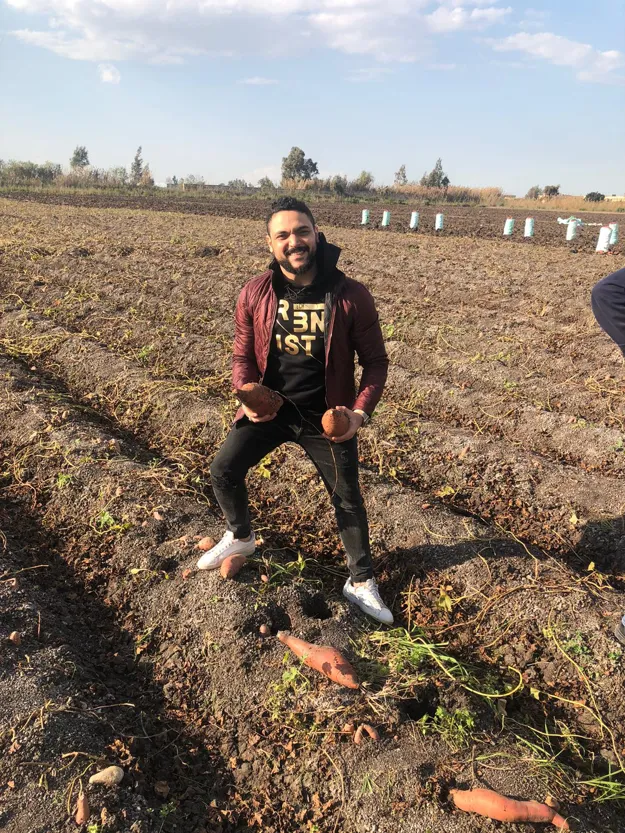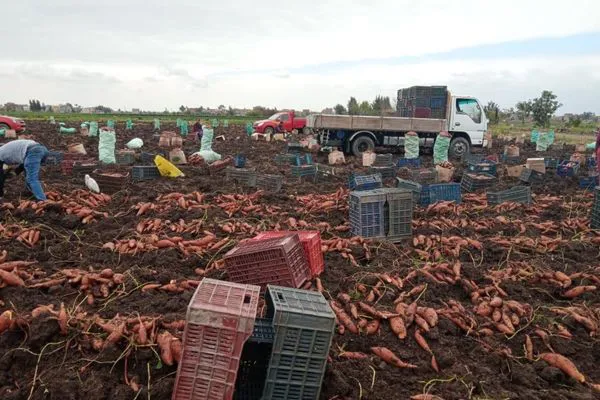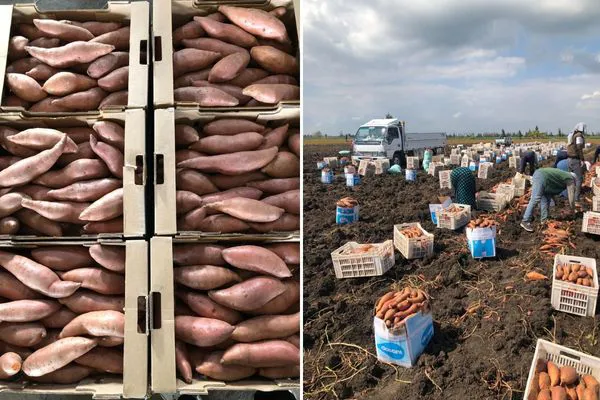 The sweet potato season is coming to an end in Egypt, exporters are liquidating their last volumes and producers are preparing for the next season. Zayed Lahseen, CEO of AfriGoodGrow, gives an overview of the season.
The sweet potato season is coming to an end in Egypt, exporters are liquidating their last volumes and producers are preparing for the next season. Zayed Lahseen, CEO of AfriGoodGrow, gives an overview of the season.
The season started with lower volumes than the previous one, due to reduced acreage. "Some farmers decided to produce rice rather than sweet potatoes this season, as both use the same soil in Kafr al-sheik and Damietta regions," explains Zayed, "but the increase in sweet potato prices will reverse this situation, and we expect to see an increase in sweet potato acreage starting in April."
Zayed continues: "Currently, more than 90% of Egyptian exporters have stopped exporting sweet potatoes. The last harvest took place a month ago and volumes are exhausted. Current stocks are 120 days old, making it difficult for most exporters to maintain them. Holding stocks that long for export requires large spaces and large refrigerators, which is not affordable for everyone."
AfriGoodGrow is one of the few still exporting sweet potatoes, according to Zayed: "We only ship to selected customers with whom we have a historical relationship. The curing process currently takes up to 10 days, during which time we remove mold and rotten tubers and select exportable lots, which are a small part of the volumes in stock."

Overall, the sweet potato season has been a success, according to Zayed: "There has been a strong demand, especially from Western European countries, such as Germany, the United Kingdom, France, and Scandinavian countries. In these countries, sweet potatoes are considered a superfood, thanks to their high nutritional value, and their consumption is in vogue. These markets demand mainly orange-fleshed sweet potatoes, which are the most produced varieties in Egypt, and the demand for Egyptian sweet potatoes has been high".
Other markets have been slower than expected, according to the exporter: "Eastern European countries, such as Poland and the Czech Republic, as well as the Arabian Gulf countries, have shown lower than expected demand. In the case of the Gulf countries, this may be explained by the fact that the weather was warmer, while consumers prefer sweet potatoes when it is cold."
Contributing to the success of the sweet potato season in Egypt, the Western European demand was faced with an insufficient supply, adds Zayed: "The biggest competitors of Egypt in this sector are Spain and the United States, and because of the heavy rains there, volumes were lower and supply wasn't enough. Rain damages sweet potatoes and causes molds and cracks. Another obvious reason that has strengthened Egypt's position compared to Spain and the United States is the fact that our costs are lower."

The high demand has increased the export prices of Egyptian sweet potatoes, adds Zayed: "The increase is up to 30% this year. The medium sizes, which correspond to XL = 600-900 grams and are the most rare, reached 0.77 EUR/kg. The smaller sizes, which are the most demanded, reached 0.65 EUR/kg, and the large ones 0.72/kg. Growers also made nice gross margins, averaging 150%."
This success is encouraging growers to plant sweet potatoes, and the acreage will undoubtedly be larger next year, according to Zayed "Many farmers have already converted their land to sweet potato growing, and the volumes will be larger next year. Planting will start in April in Kafr El Sheikh, and the first harvest will take place in July/August."
For more information:
Zayed Lahseen
AfriGroodGrow
Tel: +420 739 019 060
Email: [email protected]
www.afrigoodgrow.com
